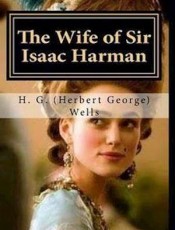it was midday in the month of august, the sun ablaze upon wood and field. only under the trees and hedges the shadows lay blue and still,—intensely, deeply blue, the warm restful blue of summer shadows. overhead stretched another blue, a vault of brilliant azure, a vast cup-shaped dome, spreading downwards from the illimitable space above, to the hazy distant hills, to the far-off peacock-blue sea, sun-kissed and radiant. the warm earth breathed forth the languorous yet wide-eyed repose of perfect summer. here was nature at the maturest moment of her beauty,—the fields golden with full-eared corn, waiting in the richness of their dower for the first stroke of the sickle; the moors purple with heather, and rich with a hidden wealth of whortleberries; the hedges hung with clusters of scarlet brambleberries, even now tinged with the deeper hue of ripeness.
on a gate, set, after the general manner of gates in the west of england, between two hedges, one to the right and another to the left, sat our friend john. from the gate, a view stretched before him, which many an artist might have been excused for attempting to seize and transfer to canvas.
in the foreground stood a birch tree, a slender, dainty, silver-barked thing, rising straight out of a purple mass of heather. its fairy lightness was backgrounded by a wood of firs, while past it, to the right, you got a stretch of undulating moorland across a valley, a strip of blue sea, and a hazy coast line of white cliffs.
“it really might be called a fine view,” said john aloud. and then he broke off, for a voice had sounded behind him,—a very young voice, a clear treble.
“there’s a man sitting on the gate.” the statement was made with the frank obviousness of childhood.
john swung himself off the said gate, and turned. this latter proceeding was distinctly simpler to accomplish from the safety of solid earth than from the topmost of five bars. doubtless[pg 22] his guardian angel prompted the action, for, on the moment of turning, his heart jumped, leaped, and pounded in a manner peculiarly perilous. picture his danger with a heart in this condition had he retained his former attitude.
on the other side of the gate, coming across the grass, and not more than twenty paces from him, was a lady accompanied by two small boys.
she was a young lady, tall and slender, in a white linen frock, and a big shady straw hat. her hair beneath it was red gold, like burnished copper, a vivid note of colour. the two boys, one on either side of her, were clad in emerald green knickerbockers, and soft white shirts. floppy straw hats were on their heads. beneath the hats you caught a glimpse of copper-coloured hair. a vivid, vital enough picture they presented. the smaller boy, four years old or thereabouts, gazed solemn-eyed towards the gate; the other, some two years or so his senior, pointed towards our john, his face eager, alive. a stranger was a bit of a rarity in those parts, it would appear.
john saw the woman turn towards the child, caught a hint of murmured words. the boy dropped the pointing hand. doubtless she had [pg 23]made the suggestion—delicately put of course—that it is not altogether the best of manners to point at strangers, however unexpected their appearance, as if they were some curious beast newly escaped from the zoo.
the lapse of time, from the first acclamation of john’s position on the gate, to the dropping of that accusing finger, had been of the briefest, nevertheless it had allowed for a few further steps to be taken across the grass, and the distance between john and the three had, at the outset, been none so great. it was clearly obvious that the intention of the three was to pass through the gate. seeing this, john bent to the fastening. by good luck it was not padlocked. had it been, it would have spoiled the dainty march of the procession, actually as well as figuratively. he swung the gate open, raising his hat at the same moment. she bent her head, a slight though entirely courteous gesture, gave “thank-you” in a low round voice.
“now heaven be praised,” murmured john, “that she did not say ‘thanks.’” by which token it will be seen that john was a trifle fastidious as to modes of expression.
[pg 24]
the two boys, having defeated the difficulties of elastic beneath the chin, had likewise removed their hats. they accomplished the restoration of them to their heads with extraordinary dignity. john, beholding the feat, marvelled. then the little cavalcade of three passed on across the heather.
john gazed after them.
